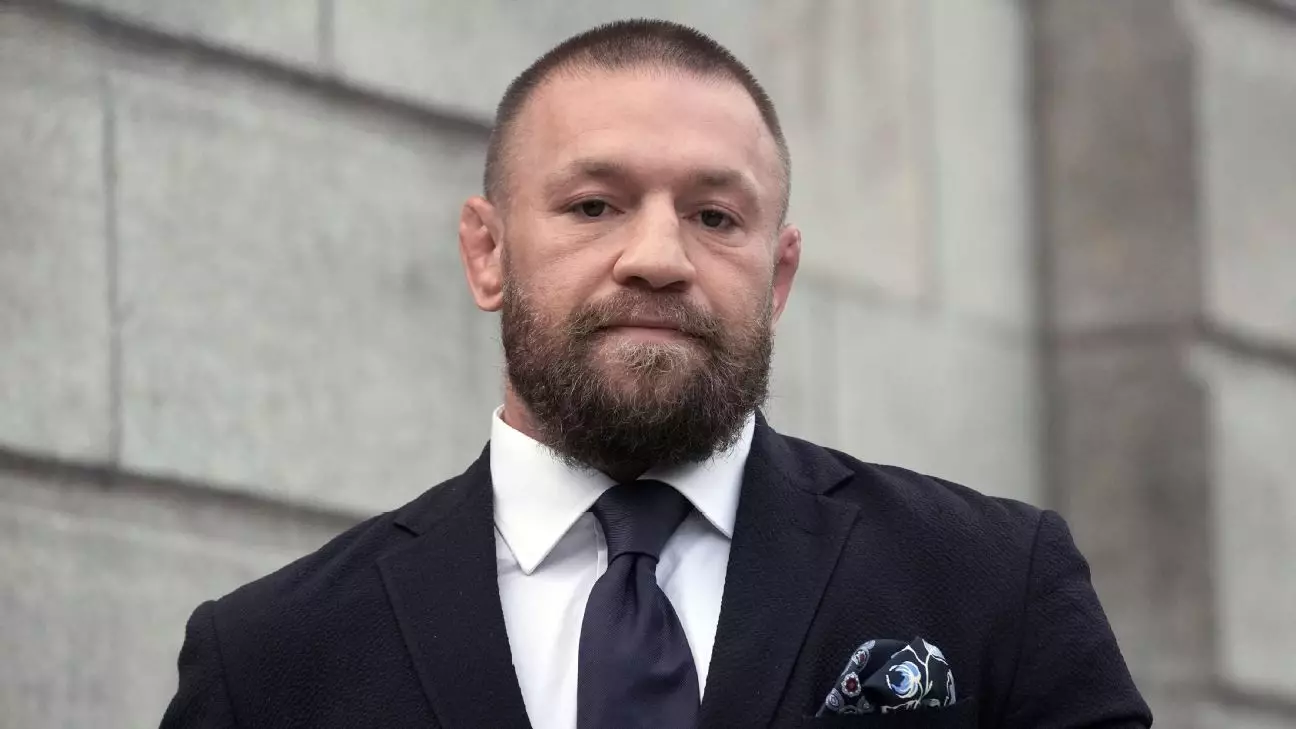In a landmark case that rocked the mixed martial arts world, a Dublin jury ruled against UFC champion Conor McGregor, concluding that he was liable for the sexual assault of a woman in a hotel room during a Christmas party in 2018. The High Court’s decision has culminated in the ordering of McGregor to pay the complainant a staggering 248,000 euros, approximately $257,000. This ruling follows a jury deliberation that spanned several days, underscoring the serious nature of the accusations.
The allegations stem from the woman’s encounter with McGregor, whom she met at a festive gathering in Dublin. According to her testimony, the situation took a harrowing turn when McGregor allegedly forced her onto a bed, choked her, and instilled a profound sense of fear in her. This shocking revelation has drawn widespread attention, particularly given McGregor’s fame and notoriety within the sports community.
Throughout the trial, the courtroom was filled with emotional testimonies and stark contrasts in narratives. The woman described moments of sheer terror, stating that McGregor threatened her life and subjected her to physical restraint. She recounted how, fearing for her safety, she complied with his advances, stating, “I remember saying I was sorry,” an indication of how trapped she felt in that fraught moment.
On the opposite side of the courtroom, McGregor vehemently resolved to defend his reputation. He has consistently denied the allegations, claiming that their interaction was consensual and vigorous, but not violent. His argument included claims that the woman had never verbally rejected his advances, portraying himself as the victim of a distorted narrative built on lies. His defense was bolstered by the assertion that any animus from the jury against him—given his controversial public persona—should not cloud their judgment. McGregor’s lawyer emphasized the necessity of setting aside personal biases, acknowledging the polarized public perception surrounding the fighter.
As the trial unfolded, the impact of legal representation became evident. The woman’s attorney characterized her not as a saint but as an individual who encountered a dire situation while looking to enjoy a night out. John Gordon vocally criticized McGregor, depicting him as a coward who tried to assert dominance stemming from recent frustrations in his professional life. The stark portrayal of McGregor contrasted sharply with the depiction of the woman as a complex character rather than a one-dimensional victim.
The testimonies laid the groundwork for contrasting interpretations of events. A paramedic’s description of the woman’s injuries added a chilling dimension to the case, with remarks that he had never encountered such severe bruising. This validation was critical for the jury, contrasting McGregor’s more casual image of the encounter as “athletic.” The stark reality of the woman’s experiences was reinforced through emotional storytelling, further complicating the jury’s task of discerning truth amid conflicting accounts.
The verdict has significant implications not just for McGregor, but for the broader discourse surrounding sexual assault allegations in high-profile cases. The ruling demonstrates a willingness by the jury to eventually believe a woman’s account of assault in a context often rife with skepticism and dismissal of similar claims.
As McGregor continues to navigate both the aftermath of this ruling and the uncertain trajectory of his fighting career—marked by a devastating injury in 2021 and subsequent withdrawal from highly-anticipated bouts—the case serves as a reminder of the potential repercussions of personal conduct, regardless of fame or success. McGregor’s future in the UFC remains uncertain, but his personal life and professional trajectory will undoubtedly be impacted by this ruling.
In a world that increasingly holds powerful figures accountable, this ruling may signify a shift in societal attitudes towards accountability in instances of sexual violence, echoing the sentiments of many advocates for victims’ rights. As discussions continue surrounding consent, power dynamics, and the consequences of societal celebrity, this case will likely remain a point of contention and reflection.

